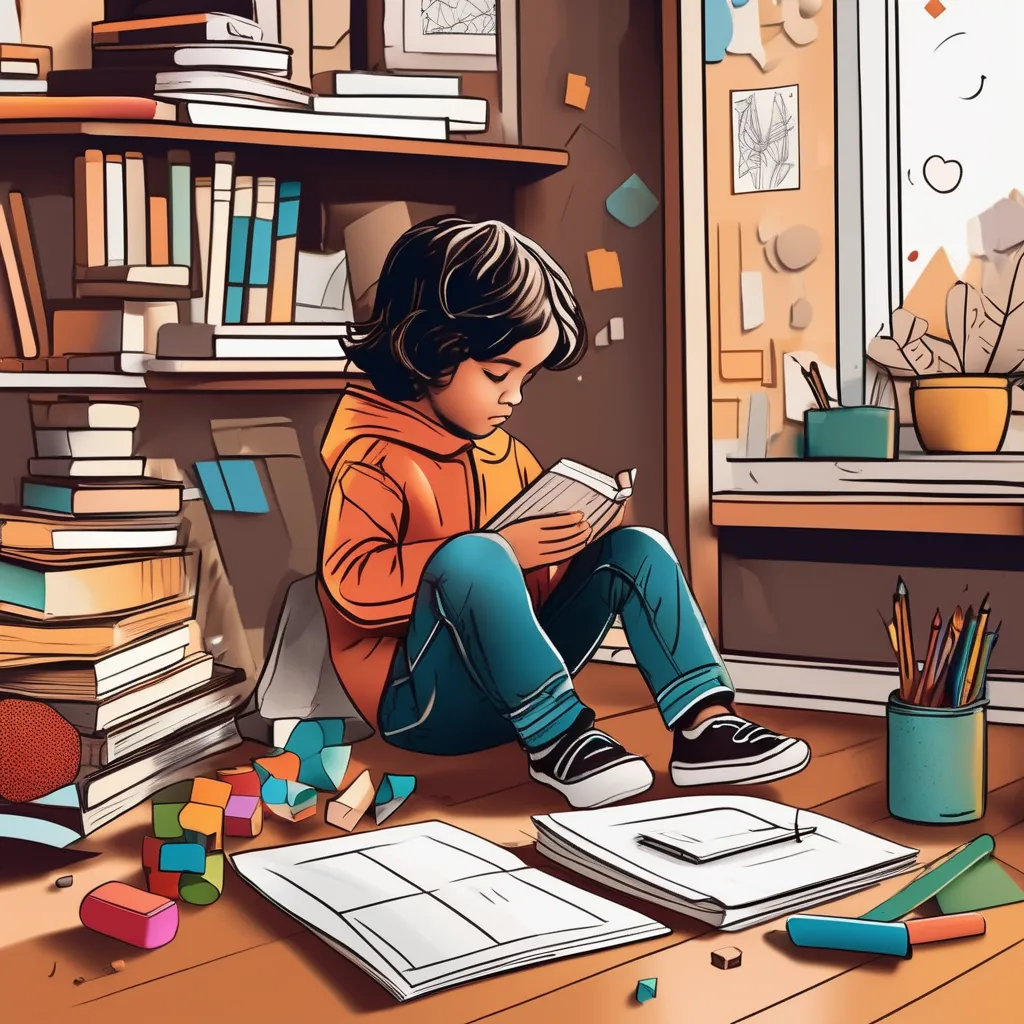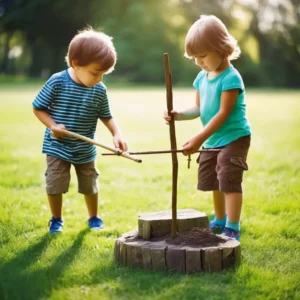Kids today have endless entertainment—tablets, streaming services, and more. That means they rarely experience true boredom. But why boredom is good for kids might surprise you.
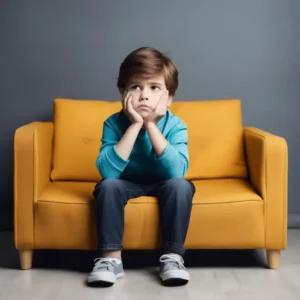
What if, instead of rushing to fill every idle moment, we saw it as a golden opportunity?
Boredom isn’t just a passing feeling—it’s a gateway to creativity, problem-solving, and independence.
Why Boredom Is Good for Kids and Their Imagination
How Unstructured Time Sparks Creativity
When kids are left with nothing to do, their brains get to work.
They create their entertainment. A cardboard box becomes a spaceship, or a new game takes shape in their imagination.
A study from the University of Central Lancashire found that boredom boosts creativity. People who experience boredom often think more creatively afterward. Kids are no different!
Dr. Teresa Belton, an education researcher, explains, “Boredom is crucial for developing internal stimulus.” It helps kids spark their imagination and creativity. So the next time your child says, “I’m bored,” take a deep breath and let them figure it out.
Why Boredom Is Good for Kids’ Problem-Solving Skills
Boredom forces kids to think for themselves. Without constant stimulation, kids must find ways to entertain themselves. This helps them build resilience and independence.
They start experimenting, tinkering, and discovering new ways to have fun.
A great example? Ever noticed how kids can turn an ordinary stick into a magic wand, a sword, or even a fishing rod? That’s boredom at work, pushing them to think beyond the obvious.
Turning Boredom into a Creativity for Kids
Encouraging Free Play to Foster Innovation
One of the best ways to harness the power of boredom is through unstructured play.
Free play gives kids the freedom to explore their interests and make their own rules.
The American Academy of Pediatrics says free play is essential. It helps kids grow socially, emotionally, and cognitively.
Instead of scheduling every moment, leave some space for free time. Kids need unstructured time to explore and create. It’s in those unscheduled moments that kids learn how to entertain themselves.
Why Boredom Is Good for Kids’ Brain Development
Boredom isn’t just about filling time—it’s about letting the brain reset

When kids aren’t overstimulated, their minds can slow down and reset. This helps them process thoughts, make connections, and even daydream.
Neuroscientists believe that daydreaming plays a crucial role in problem-solving and creative breakthroughs.
Let’s not forget—some of the greatest inventors valued idle time. Thomas Edison and Leonardo da Vinci used boredom to fuel their creativity. They believed deep thinking fueled their creative genius.
Reducing Screen Time to Unlock Creativity
It’s easy to hand kids a screen when they get restless. But, too much digital entertainment can stifle creativity. A study in JAMA Pediatrics found that too much screen time harms young children’s brain development. It can slow their cognitive growth over time.
Instead, encourage offline activities—drawing, storytelling, or even just staring at the clouds.
Of course, reducing screen time isn’t always easy. Many kids resist when their favorite shows or games are taken away. Using positive discipline strategies can help set healthy screen time boundaries without power struggles.
When kids have nothing to do, their imagination takes over. Without screens, they start thinking outside the box.
Providing Tools and Materials for Creative Expression
Boredom thrives when kids have the right materials to bring their ideas to life.
Keep simple items like paper, crayons, and building blocks on hand. Even recycled materials can spark endless creativity.
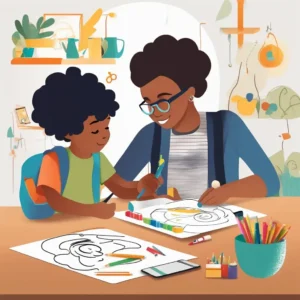
Remember the childhood joy of building forts with blankets? That’s the kind of creative play boredom encourages. Give kids access to open-ended resources, and watch their imaginations run wild.
Why Parents Should Embrace Boredom for Kids
Practicing ‘Benign Neglect’ to Encourage Independence
It’s natural to want to keep kids entertained, but sometimes, stepping back is the best thing you can do. “Benign neglect” means letting kids be bored without jumping in to fix it. Instead of solving it for them, give them space to figure it out.
By resisting the urge to intervene, you’re teaching them that boredom isn’t a problem—it’s an opportunity.
And guess what? When kids are given the space to be bored, they often surprise you with their creativity.
How Parents Can Model Creative Behavior
Kids mirror what they see. If they see you scrolling your phone during downtime, they’ll want to do the same. But if they see you doodling, journaling, or working on a hobby, they’ll be inspired to do something similar.
Try setting aside time for creative activities together.
You could paint, garden, or even build something fun. Before you know it, boredom will transform into a family-wide creativity boost.
Why Boredom Is Good for Kids’ Social Skills and Interaction
Boredom can also push kids to seek out social interactions. When kids have nothing to do, they look for ways to connect. They might start a conversation, invent a game, or build something with friends.
Screen time is replacing social skills more than ever. Giving kids opportunities to connect through play is crucial.
FAQs on Why Boredom Is Good for Kids
Q: Why is boredom important for creativity?
A: Boredom allows the mind to wander, encouraging creative problem-solving and new ideas.
Q: How does boredom help kids become more independent?
A: Boredom encourages kids to find their entertainment, helping them develop self-reliance and decision-making skills.
Q: How does boredom improve problem-solving skills?
A: When kids have nothing to do, they experiment with new ideas and find creative solutions to entertain themselves.
Q: Can boredom help kids develop patience?
A: Yes! Learning to sit with boredom teaches kids patience and how to manage frustration without immediate gratification.
Q: How does boredom support brain development?
A: Unstructured time encourages daydreaming, deep thinking, and cognitive growth, which are key for innovation and learning.
Q: How does reducing screen time help kids interact better?
A: Without digital distractions, kids engage more in conversations, outdoor play, and group activities, strengthening social skills.
Q: What are some screen-free activities to help kids embrace boredom?
A: Drawing, storytelling, building forts, playing outside, and inventing new games are great ways to make boredom productive.
Q: Should parents always step in when kids say they’re bored?
A: No, giving kids the space to figure out their entertainment helps them build independence and creativity.
Final Thoughts:
So, the next time your child complains about being bored, don’t rush to fix it. Instead, see it as an opportunity.
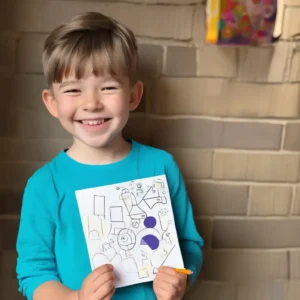
It helps kids get creative, think independently, and build problem-solving skills.
Boredom isn’t the enemy. It’s one of the best gifts we can give our kids.


